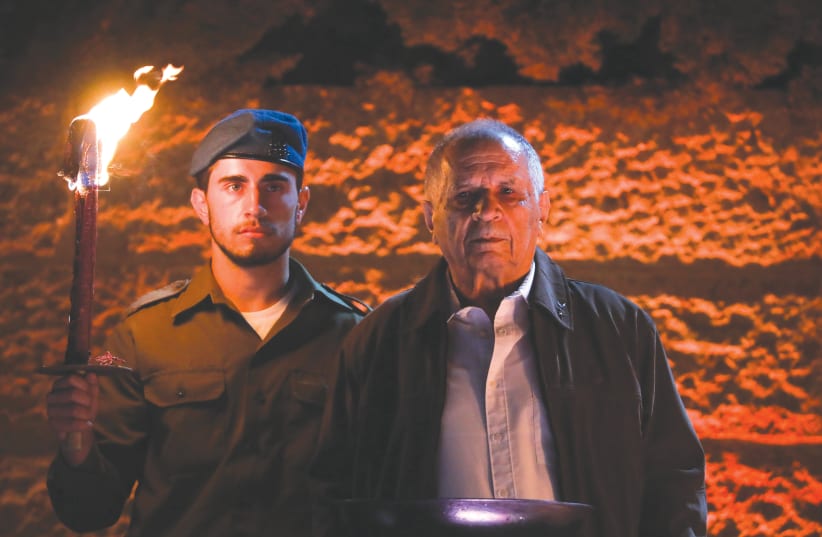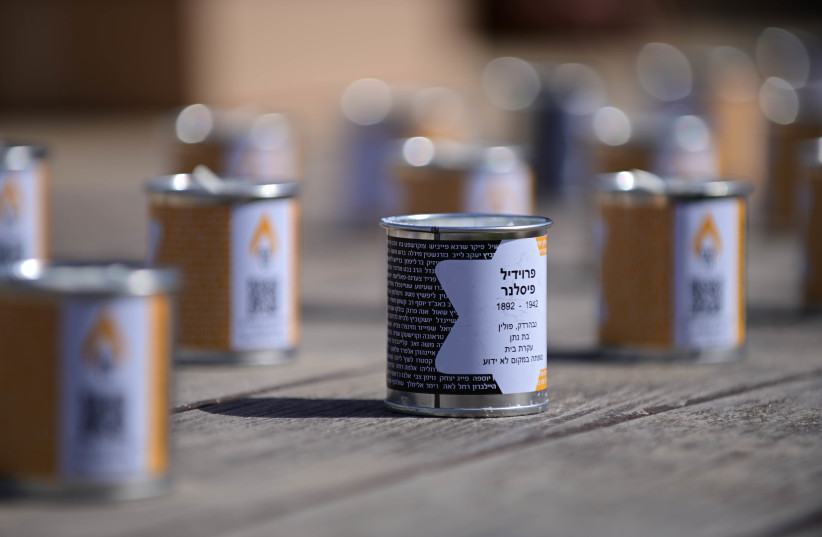A total number of 147,199 Holocaust survivors were living in Israel as of 2023, including 462 who celebrated their 100th birthdays last year, according to data published on Sunday by the Holocaust Survivors' Rights Authority ahead of Holocaust Remembrance Day.
Among the survivors are 521 new immigrants from the war in Ukraine who were recognized last year as Holocaust survivors.
The authority's data shows that the youngest among the survivors are 76 years old, born in 1946, who would have been in their mother's womb at the end of the war - and are recognized according to law. 21 percent of the survivors, about 31,000, are over 90 years old - and more than 100 passed the age of 100. 60 percent of all Holocaust survivors in Israel - about 89,000 people - are women.
Haifa is home to the largest number of Holocaust survivors, followed by Jerusalem and Tel Aviv.
In the past year, additional centers intended for Holocaust survivors were opened in cities in which there was a need to make services more accessible, including in Ramat Gan, where 4,697 survivors live; Bnei Brak, where 1,550 survivors live; Petah Tikva, where 5,998 survivors live; Holon, where 4,752 survivors live; and in Modi'in, where 1,086 survivors live.
In the next month, additional centers are expected to open in Kiryat Bialik, which will serve survivors from the Kiryot and Karmiel.
63% of the survivors recognized by the authority were born in Europe, of which the largest group were born in the former Soviet Union - 37%, while 11% were born in Romania and 5% were born in Poland.
Additionally, 3,992 were born in Bulgaria (2.7%), 2,065 were born in Hungary (1.4 %), and about 1,952 were born in Germany.
37% of the survivors were born in Asia and North Africa, of which 27,765 are Moroccan and Algerian Jews who suffered from various restrictions and harassment under Vichy rule. 16,137 lived in Iraq and suffered from the antisemitic Farhud riots in early June 1941.
Additionally, approximately 7% of those recognized by the authority are Libyans and Tunisians who suffered from racial laws and were deported to labor camps, and some were even sent to the Jado concentration camp.
Over NIS 5.6 billion distributed to Holocaust survivors in past year
In the past year, the authority distributed payments, grants and benefits in the amount of over NIS 5.6 billion, and worked to bring every service to the homes of the survivors.
"Today, as the survivors have grown older, the services provided have become more personal, healthful and communal at the highest level," said the deputy minister in the Prime Minister's Office, Uri Maklev, who is responsible for the authority. "There is no way that a survivor will not receive an adequate response. We will not rest, we will continue to work for improvements and to optimize the service provided to the survivors, who are our connection to the previous generation that survived the atrocities."
"During the past year, we continued to expand our activities in making services accessible to the survivors' homes, including over 16,000 home visits, and we also helped them to exhaust their rights from the country and the world," said the director of the Holocaust Survivors Rights Authority, Ronit Rosen. "Our mission is clear and urgent - to act quickly and with maximum sensitivity in order to help the survivors live with the well-being they deserve."
The state ceremonies for Holocaust Remembrance Day will begin on Monday evening, with a siren sounding for two minutes at 10 a.m. on Tuesday to mark a moment of silence.

